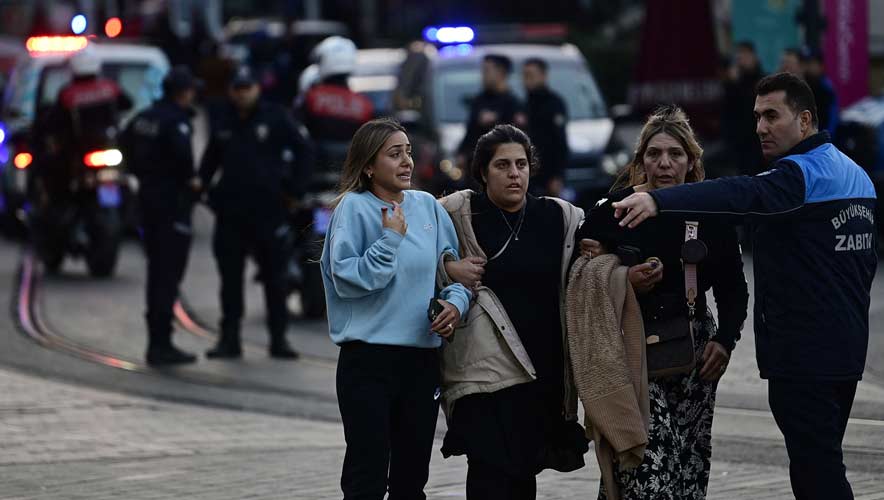Turkish Authorities Search for Bombers After Explosion in Istanbul
A busy shopping district in Istanbul, Turkey, was rocked by an explosion on Sunday, 13 November, killing six people, wounding more than 80 others, and sending panicked people fleeing from the popular pedestrian thoroughfare that regularly attracts families, tourists, and shoppers, the Associated Press reported.
Turkish President Recep Tayyip Erdogan called the blast a “treacherous attack” that “smells like terrorism,” adding that the perpetrators would be punished.
The blast at Istiklal Avenue occurred at 4:13 p.m. local time on Sunday, sending debris into the air, Reuters reported. Justice Minister Bekir Bozdag told a state-run media outlet that a woman sat on a bench for 40 minutes before leaving moments before the blast, which suggested that a bomb in a bag she left behind was timed to explode or was detonated from afar.
Turkish Vice President Fuat Oktay told reporters that the person who allegedly left the bomb, Ahlam al-Bashir, has been taken into custody. Officials reviewed footage from 1,200 security cameras, raided 21 sites, and detained 46 people before locating the suspect, according to The New York Times.
"The police said [al-Bashir] had crossed into Turkey illegally from northern Syria to carry out the attack, adding that she had received orders from Kobani, a Kurdish city in northern Syria," the Times reported. "The explosion had been caused by a small amount of TNT left in a bag on the street, the police said."
Istanbul has been targeted by bombings in the past, including in a series of attacks in 2015 and 2016 that killed more than 500 people. Those bombings were carried out by Kurdish separatists, Islamic militants, and others, but so far no one has claimed responsibility for the latest attack.
The Turkish government has blamed the Kurdistan Workers Party (PKK) for the blast, triggering concerns of further conflict as national elections approach in June 2023. The government also accused the United States of being complicit in the attack because America maintains a military partnership with a Kurdish militia in Syria, according to The New York Times.
In the aftermath of the attack, Turkey’s restrictions on the press and free speech kicked in—temporary limits on reporting about the explosion (banning close-up videos and photos) were enacted. Turkish officials have identified 25 social media users who shared “provocative content” that could break the country’s controversial disinformation law, which carries a prison sentence of up to three years for disseminating false information about domestic or international security, public order, or health on social media, CBS News reported. Access to Twitter and other social media sites was also restricted.
